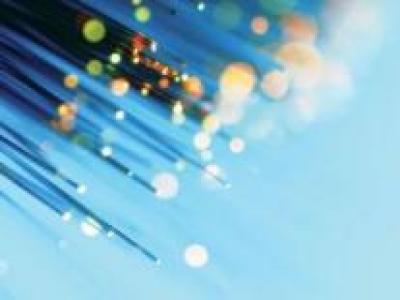15% of World’s Broadband Deemed ‘4K-Ready’
The smarter way to stay on top of the multichannel video marketplace. Sign up below.
You are now subscribed
Your newsletter sign-up was successful

Global broadband speeds experienced some ups and downs in Q3 as average connection speeds rose versus the previous period along with a small decline in average peak speeds, according to Akamai’s latest State of the Internet Report.
Akamai also found that 15% of the world is “4K ready,” the classification Akamai assigns to broadband connections that pump out at least 15 Mbps. That 4K-readiness figure, which is becoming more important as Netflix, Amazon and MVPDs look to expand their 4K streaming libraries, is up from 5.3% in Q3 2014, according to Akamai.
In Q3, global average connection speeds rose 14% year-over-year, to 5.1 Mbps, but only rose 0.2% versus the previous quarter.
South Korea (20.5 Mbps) was tops in that category, though down 19% year-on-year. Rounding out the global top 10 for average connections speeds were: Sweden (17.4Mbps); Norway (16.4 Mbps); Switzerland (16.2 Mbps); Hong Kong (15.8 Mbps); Netherlands (15.6 Mbps); Japan (15 Mbps); Finland (14.8 Mbps); Latvia (14.5 Mbps) and Czech Republic (14.5 Mbps). The United States, which placed 16th globally, produced a 12.6 Mbps average, up 9.4% from the year-ago quarter, and up 7.3% versus Q2 2015.
With respect to average peak connection speeds, the world averaged 32.2 Mbps in Q3 2015s, down 0.9% versus Q2 2015, but rose 30% year-over-year.
Singapore, with a peak average of 135.4 Mbps, led the way, followed by Hong Kong (101.1 Mbps); South Korea (86.6 Mbps); Japan (78.4 Mbps); Taiwan (77.9 Mbps); Qatar (75.2 Mbps); Macao (73.7 Mbps); Romania (72.9 Mbps); Israel (70 Mbps); and Sweden (69 Mbps). The U.S. was 21st globally, with a peak average in Q3 2015 of 57.3 Mbps, up 18% year-over-year, and up 14% quarter over quarter.
Akamai also tracks adoption by speed levels, including 25 Mbps, the FCC’s current downstream benchmark for what's considered “broadband.”
The smarter way to stay on top of the multichannel video marketplace. Sign up below.
Globally, 5.2% of unique IP addresses connected to Akamai at average connection speeds of at least 25 Mbps, up 6.3% versus the previous quarter, led by South Korea (24%), Sweden (19%) and Norway (16%).
The U.S. was not in the top 10 in the 25 Mbps category, but Washington, D.C., was tops in the nation, with 22% of connections providing average speeds of at least 25 Mbps in Q3 2015, followed by Delaware (17%), Utah (14%) and Massachusetts (13%.)
Akamai also continued to track adoption of IPv6, a more massive IP addressing scheme that enters play as the pool of IPv4 addresses runs dry and amid the growth of the so-called Internet of Things.
